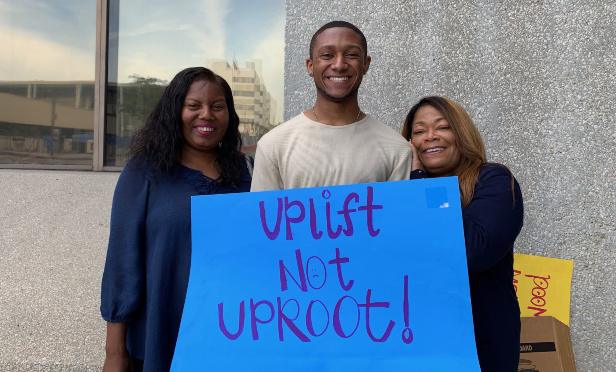 The Inglewood City Council passed a permanent rent control ordinance Tuesday, which will cap rent increases in the market at 5% annually. The measure is a response to growing housing affordability issues throughout the greater L.A. area. A group of local residents called the Uplift Inglewood Coalition were the chief supporters and proponents of the measure.
The Inglewood City Council passed a permanent rent control ordinance Tuesday, which will cap rent increases in the market at 5% annually. The measure is a response to growing housing affordability issues throughout the greater L.A. area. A group of local residents called the Uplift Inglewood Coalition were the chief supporters and proponents of the measure.
“This rent control ordinance was so critical because we have had tenants experiencing rent increases of up to 140% and beyond,” D'Artagnan Scorza, Ph.D., executive director of the Social Justice Institute and a member of the Uplift Inglewood Coalition, tells GlobeSt.com. “We have been deeply concerned about the impact that this has had on our residents in the community and we wanted to make sure that this ordinance would protect both our newer residents as well as to support people that have been here for decades, especially our seniors and veterans that are on a fixed income.”
The Uplift Inglewood Coalition launched three years ago in response to rising rents. In addition to a cap in rent increases, the measure also includes eviction protections and establishes a rent board. There are also exceptions for the cap on rents. “We have been working for the past three years to address Inglewood's housing crisis, and we believe that the rent control ordinance is one approach to help to that,” says Scorza. “We have worked with the city to adopt inclusionary zoning policies to make sure that there is a focus on affordability, and we want to make sure that there are protections in place for tenants that are being gouged and evicted.”
The 5% rent increase allowance is higher than Los Angeles, which caps rent bumps at 3% annually. Scorza said that they group wanted to protect residents while acknowledging the investment needs of landlords as well. “An increase higher than 5% has lead to significant challenges related to homelessness in our city,” he says. “We understand that landlords have the right to a fair rate of return. We wanted to at least pay increases in CPI so that landlords and moms-and-pops could continue to benefit from renting while ensuring that it did not exacerbate our homelessness crisis.”
This was an uphill battle for the group. When it first launched, city leadership did not support rent control in the city. However, the strong community support and growing concern over housing needs helped to sway city councilmembers. “When we started this campaign, the city told us that this was not going to happen,” adds Scorza. “We ran our own initiative to qualify this for the ballot. We were prepared to put this to the voters at the upcoming election. The city got the message and they understood that there was a need. They decided to take action.”
© 2025 ALM Global, LLC, All Rights Reserved. Request academic re-use from www.copyright.com. All other uses, submit a request to [email protected]. For more information visit Asset & Logo Licensing.







